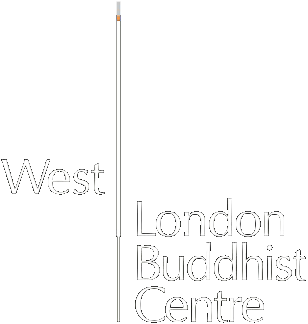Mental Health week special
The ‘can-do’ attitude
There is a collection of attitudes, qualities and skills which mindfulness helps to develop which contributes to maintaining and developing mental and physical well-being. Behind them all is one important attitude which I call the ‘can-do’ attitude. The can-do attitude is that you can take responsibility for your own well-being and keep the initiative in that process. Also, that you will explore your actual situation, what it is, and do what you can to improve it. Doing what is necessary to look after yourself is at the core of wellness.
Because you’re worth it
This can-do attitude is part of a collection of qualities which as well as the intention to look after yourself includes the underlying quality of self-care and a growing confidence that you can do that. For a momentum towards wellness all these elements need to be present to some degree. It all comes down to that wonderful phrase ‘Because you’re worth it’. Your own ‘can-do’ attitude and it’s associated positive qualities combine with an openness to being helped by others, so it’s not that you have to do everything yourself.
Can-do Practice
Using the lens analogy (see previous post) let your awareness expand to take in a broad spectrum of what is uncomfortable and comfortable in your experience. Also be open to an underlying self-care and can-do attitude. If you notice discomfort, find simple and direct solutions to the difficulty if possible. The underlying question is, can anything be done which alleviates this discomfort while maintaining the positive momentum of what I’m doing?
Simple solutions in practice
I heard a very good example of this from a recent class. A committed regular was doing the guided meditation and realised that she was cold and stiff, so she stood up and continued the meditation standing up. It is such a good example because she found a simple solution that didn’t distract her from the main thing she was wanting to do (meditate) which she knew from her own experience would help her well being in the long run. My example in the same meditation was very similar. I noticed that my knee was stiff so I just moved it slightly and carried on with the meditation. A self-care attitude is behind finding simple solutions to situations or experiences which are adverse.
Self-care neds to be acknowledged and respected
Why these are such good examples is that they have the underlying quality of care and kindness. They are expressions of looking after oneself. This underlying quality of self-care needs to be acknowledged and respected. When it is acknowledged and respected it can operate in the background while looking after you. In this way the underlying tendency for positive self-care merges with your clear intention. Ideally what you are doing is also an expression of your self-care in that it helps you look after yourself and what is important to you. Your positive self-care allows you to carry on with the process of looking after yourself, thereby the two merge together.
Momentum in mindfulness
The combination of the positive self-care and momentum in looking after yourself strengthens your can-do attitude and gives you confidence in it. Keeping your momentum going in looking after yourself is an important element of mindfulness. When that momentum comes from a positive place it has a quality of gentleness within it.
Moving forward
Moving forward or progression in looking after yourself when things are difficult is always one step at a time, without jumping ahead of yourself. Part of that is the growing understanding and recognition of what the difficulty is. You can deal more precisely with that particular difficulty when there is clear recognition of what it is. This kind of self-care allows you to be in a frame of mind where you can have a positive influence or practical affect on others in some way when you need to.
***
Vajradaka is one of the most experienced meditation teachers in Triratna and is continuously developing fresh approaches to maintaining and developing a vibrant meditation practice. He is known for easy to relate to ways of teaching which come across as clear, practical and relevant. He is a regular guest teacher on Dharma Night.

